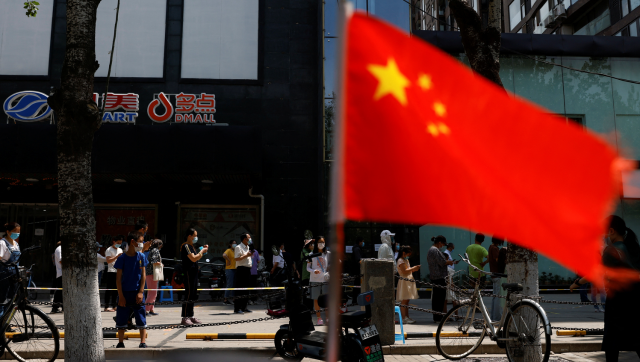For the first time, Beijing’s premier intelligence agency has outlined 10 conditions that could lead to questioning, colloquially known as an “invitation to tea.” The Ministry of State Security, in a WeChat article posted on Tuesday, acknowledged the euphemism by referring to the “10 cups of tea” that could result in a summons. These conditions primarily focus on issues related to national security, state secrets, and violations of the updated anti-espionage law. The highlighted measures coincide with efforts by authorities in mainland China and Hong Kong to address legal loopholes and potential threats to national security. Hong Kong Chief Executive John Lee Ka-chiu unveiled plans on Tuesday to enact comprehensive domestic national security legislation, targeting offenses such as treason, theft of state secrets, and espionage. Beijing intensified its anti-espionage efforts last year, seeking public assistance in identifying suspected foreign spy activity. The updated counter-espionage law, effective since July, broadened the definition of spying and expanded the investigative powers of national security law enforcement agencies. Late last year, the Law on Guarding State Secrets, with its first significant proposed update in a decade, aimed to enhance coverage amid escalating geopolitical tensions. This heightened national security scrutiny resulted in raids targeting foreign consulting companies, including questioning staff at US consultancy Bain & Company’s Shanghai office and a raid on international consulting firm Capvision. As per reports, the WeChat article acknowledged the popularization of the term “invitation to tea” as an internet buzzword for being summoned or investigated for suspected offenses. It cautioned against illegal production, sale, possession, or use of spy devices, emphasizing the anti-espionage law’s provisions related to construction projects in security control areas around crucial units and facilities. The ministry stressed the importance of promptly detecting and preventing the use of construction projects by foreign spy agencies. Foreigners found violating the anti-espionage law may be required to leave the country within a designated period, with non-compliance triggering a summons. While detailing conditions for summoning, the ministry issued a broader warning that any acts endangering national security could lead to legal consequences. In its concluding remarks, the ministry urged society to firmly establish the concept of national security, calling for collective efforts to build a robust barrier safeguarding the nation.
Beijing intensified its anti-espionage efforts last year, seeking public assistance in identifying suspected foreign spy activity. The updated counter-espionage law, effective since July, broadened the definition of spying and expanded the investigative powers
Advertisement
End of Article


)

)
)
)
)
)
)
)
)



